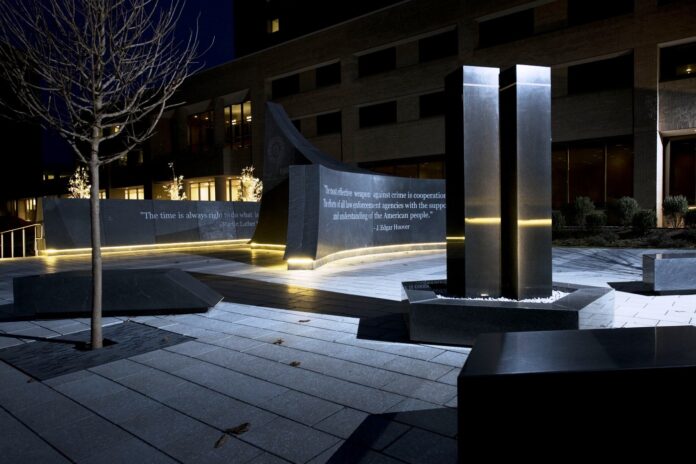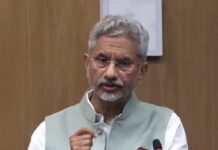“In recent years, domestic violent extremists have caused more deaths in the United States than international terrorists”
IN the moments after the country was attacked on September 11, 2001—before the largest-ever FBI investigation took shape and evidence response teams deployed, even before heroic first-responders were seen heading to plane crash sites in New York, Pennsylvania, and Virginia—many people across the country felt a profound new calling to help and to serve.
“I can vividly remember the moment and then the days and weeks following September 11, and I immediately knew that I wanted to be part of preventing that ever happening again,” said Brandon, a forensic DNA expert at the FBI Laboratory, who was in college 20 years ago when terrorists crashed four planes and killed nearly 3,000 people. “What September 11 did for me was it gave me that new direction.”
As she watched wall-to-wall news coverage during the immediate aftermath of the attacks, 14-year-old Carrie, who today is an intelligence analyst in the FBI’s Counterterrorism Division, said that all she wanted to do at the time was go to the attack site in New York and help. “It really was like, ‘I want to do something. I want to help. I want to go to Ground Zero and help them,’” Carrie recalled in a recent interview. “But everyone’s telling you, ‘You can’t. You’re too young. You don’t understand.’ And you’re like, ‘I do understand. I do know what’s going on. And I want to help.’”
Across the FBI there are scores of employees with similar stories—the SWAT special agent who was a kid in Brooklyn being whisked to safety on 9/11 when he saw an FBI agent helping people and decided at that moment he would one day do the same. Or the intelligence analyst who was 12 and at school when her teacher turned the TV on to see planes hit the World Trade Center towers. It set her on a career path to help prevent another attack. “9/11 has always been in the back of my mind as a pushing force that makes me want to do the work that I do with the FBI,” she said.
The terrorist attacks were pivotal in the evolution of the FBI, which transformed itself into an intelligence-driven, threat-based, national security and law enforcement agency, with counterterrorism as its highest priority. The Bureau improved how it collects and shares intelligence; it has established more than 200 Joint Terrorism Task Forces with partner law enforcement agencies across the country. The FBI has also enhanced its technology and improved its relationships with the public and private sectors.
As the threat picture has morphed since 2001, the FBI has adjusted. Racially or ethnically motivated extremism and anti-government or anti-authority violent extremism are now seen as the top domestic terrorism threats. “In recent years, domestic violent extremists have caused more deaths in the United States than international terrorists,” FBI Executive Assistant Director Jill Sanborn said in a recent law enforcement trade publication. Last year alone, anti-government or anti-authority violent extremists were responsible for three of four domestic violent extremist acts.
For FBI personnel—most of whom were not at the Bureau 20 years ago—the core mission has remained the same as the day they started on the path to the FBI: to help and serve. Those who remember 9/11 said they make every effort to ensure the next generation of Bureau employees know how profound an impact it made on the country and the FBI. In 2019, Director Christopher Wray went a step further, requiring all new agent and analyst classes to tour the 9/11 Memorial & Museum in New York City to ensure the pivotal event doesn’t become “a mere historical footnote for the people of the Bureau.”
“I hope that you’ll come away from this visit with reminders that you’ll carry with you throughout your Bureau careers,” Wray tells new agents and analysts. “Reminders of why we’re so focused on integrating intelligence in everything we do. Why we emphasize partnerships. Why it’s so crucial to never be complacent.”
(FBI)















